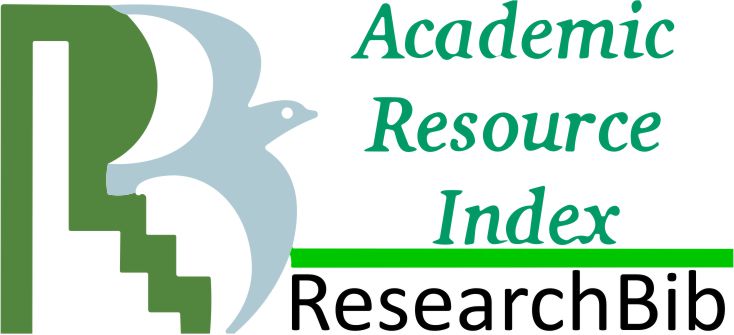DOI
10.21002/jaki.2019.12
Abstract
This study aimed to examine the determinants of ego depletion and its effect on judgment and decision-making (JDM) quality. Auditing is one of the professions vulnerable to ego depletion, which is a temporary state of lack of cognitive resources to self-control caused by physical or psychological fatigue. Data were collected via online survey on 121 auditors in Indonesia who were selected by convenience sampling. The results showed that interpersonal conflict positively affected ego depletion. In line with ego depletion theory, the results supported previous research that ego depletion negatively affected JDM quality. Interestingly, this research also found that the level of industry-specific experience reduced the effect of ego depletion on JDM quality. In conclusion, psychological problems had a more significant influence on auditor cognitive resources than physical problems, which could then have an impact on his/her performance in generating judgments and decisions.
References
Akers, M. D., and G. L. Porter. 2003. Your EQ skills: Got What It Takes?. Journal of Accountancy. Barber, L., M. J. Grawitch, and D. C. Munz. 2013. Are Better Sleepers More Engaged Workers? A Self ‐ Regulatory Approach To Sleep Hygiene and Work Engage-ment. Stress and Health, 29 (4), 307-316. Barnes, C. M., and J. R. Hollenbeck. 2009. Sleep deprivation and decision-making teams: Burning the midnight oil or playing with fire?. Academy of Management Review, 34(1), 56-66. Barnes, C. M., J. Schaubroeck, M. Huth, and S. Ghumman. 2011. Lack of sleep andunethical conduct. Organizational Behavior and Human Decision Processes, 115(2), 169-180. Bartlett, J. E., J. W. Kotrlik, and C. C. Higgins. 2001. Organizational Research: Determining Appropriate Sample Size in Survey Research Appropriate Sample Size In Survey Research. Information Technology, Learning, And Performance Journal, 19 (1), 43-50. Baumeister, R. F. 2002. Ego Depletion and Self-Control Failure: An Energy Model of The Self's Executive Function. Self and Identity, 1(2), 129-136. Baumeister, R. F., and K. D. Vohs. 2018. Strength Model Of Self-Regulation As Limited Resource: Assessment, Controversies, Update. In Self-Regulation And Self-Control. 78-128. Baumeister, R. F. et al. 1998. Ego Depletion: Is The Active Self A Limited Resource? Journal Of Personality and Social Psychology, 74(5), 1252-1265. Baumeister, R. F., D. M. Tice, and K. D. Vohs. 2018. The Strength Model of Self-Regulation: Conclusions From The Second Decade of Willpower Research. Perspectives on Psycho-logical Science, 13 (2), 141-145. Baumeister, R. F., K. D. Vohs, and D. M. Tice. 2007. The Strength Model of Self-Control. Current Directions In Psychological Science, 16 (6), 351-355. Baumeister, R. F., B. R. Wright, and D. Carreon. 2018. Self-Control “In The Wild”: Experience Sampling Study of Trait and State Self-Regulation. Self And Identity, 1-35. Cameran, M., A. Ditillo, and A. Pettinicchio. 2017. Audit Team Attributes Matter: How Diversity Affects Audit Quality. European Accounting Review, 27 (4), 595-621. Contessotto, C., W. R. Knechel, and R. A. Moroney. 2019. The Association between Audit Manager and Auditor-In-Charge Experience, Effort, and Risk Responsiveness. Auditing: A Journal of Practice & Theory, 38 (3), 121-147. Danziger, S., J. Levav, and L. Avnaim-Pesso. 2011. Extraneous factors in judicial decisions. Proceedings of the National Academy of Sciences, 108 (17), 6889-6892. Dierdorff, E. C., and J. K. Ellington. 2008. It's the Nature of the Work: Examining Behavior-Based Sources of Work-Family Conflict Across Occupations. Journal of Applied Psychology, 93 (4), 883-892. Esmond-Kiger, C., M. L. Tucker, and C. A. Yost. 2006. Emotional Intelligence: From The Classroom To The Workplace. Management Accounting Quarterly, 7(2), 35-42. Finucane, M. L. et al. 2000. The Affect Heuristic in Judgments of Risks and Benefits. Journal of Behavioral Decision Making, 13 (1), 1-17. Gino, F., L. L. Shu, and M. H. Bazerman. 2010. Nameless Harmless Blameless: When Seemingly Irrelevant Factors Influence Judgment Of (Un) Ethical Behavior. Organizational Behavior and Human Decision Processes, 111 (2), 93-101. Glodstein, D. 2014. Recruitment and Retention: Could Emotional Inte-lligence be The Answer. The Journal of New Business Ideas and Trends, 12 (2), 14-21. Gunia, B. C. et al. 2012. Contemplation and Conversation: Subtle Influences on Moral Decision Making. Academy of Management Journal, 55(1), 13-33. Hagger, M. S. et al. 2010. Ego Depletion and The Strength Model of Self-Control: a Meta-Analysis. Psychological bulletin, 136 (4), 495-525. Hair Jr, J. F. et al. 2017. A Primer on Partial Least Squares Structural Equation Modeling (PLS-SEM). Sage Publications. Hofmann, W., K. D. Vohs, and R. F. Baumeister. 2018. What People Desire, Feel Conflicted About, and Try To Resist in Everyday Life. in Self - Regulation and Self-Control, 256-266. Routledge. Hurley, P. J. 2015. Ego depletion: Applications and implications for auditing research. Journal of Accounting Literature, 35, 47-76. Hurley, P. J. 2017. Ego Depletion and Auditors' Busy Season. Behavioral Research in Accounting, 29(2), 25-35. Hurley, P. J. 2019. Ego Depletion and Auditors’ JDM quality. Accounting, Organizations and Society, 77, 1-12. Hussein, A. S. 2015. Penelitian Bisnis dan Manajemen Menggunakan Partial Least Squares (Pls) dengan Smartpls 3.0. Malang: Universitas Brawijaya. Ikatan Akuntan Publik Indonesia. 2019. Directory IAPI 2019. Jakarta: Ikatan Akuntan Publik Indonesia. Kaplan, S., and M. G. Berman. 2010. Directed Attention as a Common Resource for Executive Functioning and Self-Regulation. Perspectives on psychological science, 5(1), 43-57. Knechel, W. R., et al. 2012. Audit Quality: Insights from The Academic Literature. Auditing: A Journal of Practice Theory, 32, 385-421. Kouchaki, M., and I. H. Smith. 2014. The Morning Morality Effect: The Influence of Time of Day on Unethical Behavior. Psychological science 25 (1), 95-102. Latan, H., and I. Ghozali. 2013. Partial Least Square Konsep Aplikasi Path Modeling SmartPLS 2.0 M3. Semarang: Badan Penerbit UNDIP. Lee, J. S., M. Keil, and K. F. E. Wong. 2017. Does a Tired Mind Help Avoid a Decision Bias? The Effect of Ego Depletion on Escalation of Commitment. Applied Psychology, 67 (1), 171-185. Lian, H. et al. 2017. Self-control at Work. Academy of Management Annals, 11 (2), 703-732. López, D. M., and G. F. Peters. 2012. The Effect of Workload Compression on Audit Quality. Auditing: A Journal of Practice and Theory, 31 (4), 139-165. Maranges, H. M., B. J. Schmeichel, and R. F. Baumeister. 2017. Comparing Cognitive Load and Self-Regulatory Depletion: Effects on Emotions and Cognitions. Learning and Instruc-tion, 51, 74-84. Mullis, C. E., and R. C. Hatfield. 2018. The Effects of Multitasking on Auditors’ Judgment Quality. Contemporary Accounting Research, 35(1), 314-333. Muraven, M., D. M. Tice, and R. F. Baumeister. 1998. Self-Control As a Limited Resource: Regulatory Depletion Patterns. Journal of Personality and Social Psychology, 74 (3), 774-789. Neal, D. T., W. Wood, and A. Drolet. 2013. How Do People Adhere to Goals When Willpower is Low? The Profits (and Pitfalls) of Strong Habits. Journal of Personality and Social Psychology, 104 (6), 959-975. Palmer, K. N., D. E. Ziegenfuss, and R. E. Pinsker. 2004. International Knowledge, Skills, and Abilities of Auditors/ Accountants: Evidence From Recent Competency Studies. Managerial Auditing Journal, 19 (7), 889-896. Shaukat, R., A. Yousaf, and K. Sanders. 2017. Examining The Linkages Between Relationship Conflict, Performance and Turnover Intentions: Role of Job Burnout As a Mediator. International Journal of Conflict Management, 28 (1), 4-23. Sholihin, M., and D. Ratmono. 2013. Analisis SEM PLS dengan WrapPLS 3.0 untuk Hubungan Nonlinear dalam Penelitian Sosial dan Bisnis. Yogyakarta: Penerbit Andi. Solomon, I., and K. T. Trotman. 2003. Experimental Judgment and Decision Research in Auditing: The First 25 Years of AOS. Accounting, Organi-zations and Society, 28 (4), 395-412. Sweeney, J. T., and S. L. Summers. 2002. The Effect of The Busy Season Workload on Public Accountants' Job Burnout. Behavioral Research in Accounting, 14 (1), 223-245. Tice, D. M. et al. 2007. Restoring the Self: Positive Affect Helps Improve Self-Regulation Following Ego De-pletion. Journal of Experimental Social Psychology, 43 (3), 379-384. Tuanakotta, T. M. 2013. Audit Berbasis ISA (International Standards on Auditing). Jakarta: Salemba Empat. Vohs, K. D. et al. 2011. Ego Depletion is Not Just Fatigue: Evidence From a Total Sleep Deprivation Expe-riment. Social Psychological And Personality Science, 2 (2), 166-173. Yam, K. C., X.-P. Chen, and S. J. Reynolds. 2014. Ego Depletion and Its Paradoxical Effects on Ethical Decision-Making. Organizational Behavior Human Decision Processes 124 (2), 204-214. Zhang, Y. et al. 2017. Cut You Some Slack? an Investigation of The Perceptions of a Depleted Employee’s Unethicality. Journal of business ethics, 1-11.
Recommended Citation
Mursita, Lufi Yuwana; Mustafida, Nurul; and Rachmadia, Rizki
(2019)
"EGO DEPLETION AND ITS EFFECT ON AUDITORS’ JUDGMENT AND DECISION-MAKING QUALITY,"
Jurnal Akuntansi dan Keuangan Indonesia: Vol. 16:
No.
2, Article 6.
DOI: 10.21002/jaki.2019.12
Available at:
https://scholarhub.ui.ac.id/jaki/vol16/iss2/6












